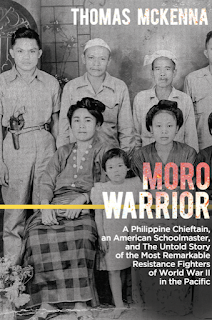That Jessica Zafra is a great writer goes without saying; but her wit and acerbity, her idea (only somewhat facetious) of world domination via yaya and domestic helper make the notion of a novel from her irresistible. Only consider the volumes of Twisted columns she’s sold over two decades, apart from three short story collections, and it's understandable that
The Age of Umbrage (Bughaw, an imprint of Ateneo de Manila University Press, 2020) could not have come soon enough.
A slim book with easy-on-the-eye-catching cover art by Bianca Alexandra Ortigas in bright Crayola red violet, its slightness in my hands is disconcerting. Flipping through, I note the book’s entire six chapters ending at a petite 126 pages. That's thirty pages fewer than one of my all-time-favorite novels: Ian McEwan’s
On Chesil Beach (which a few critics have called a novella). And then there is her very first sentence, a wistful, heartrending line with hardly a pause for a breath through a substantial paragraph that recalls Nick Joaquin.
From the outset, we sense a master in command of language, smooth as milk, and so all-knowingly authoritative, we relax, confident we won’t be jolted out of the reverie by awkward diction, an inorganic sentence or an overwrought adverb. We turn ourselves over, the way we might turn over in a dream. It’s hard not to hear Zafra’s voice in our head. The buy-in is immediate.
We enter the familiar yet strange world of the unfortunate Siony, her wayward Hernani, and their extraordinary daughter, Guada, the life they live, the class differences they negotiate, their struggle, their pathos, their lunacy in the every day, and the all too surreal hilarity of living in the mansion of Don Paquito Almagro, close friend to the President, in the wealthy, high-walled subdivision of Almagro. Zafra takes such palpable pleasure in the selection of details for this world—quoting dialogue from movies, pop and classic, making references to books, from Thomas Hardy to Frank Herbert, the music of Madonna and Prince, and the 55-volume The Philippine Islands by Blair and Robertson, included for texture and the nifty little inside joke.
We feel for Siony, grim-faced and resigned, as she accepts the only chance she has for herself and her child. We sympathize with Guada and understand her ambivalence, her reluctant acceptance of the way things are, that she is her mother’s one and only reason for living. And through it all, in the background, the events of recent Philippine history unfurl in like swathes of indigenous fabric, its designs always apparent. We delight too in the large, motley cast of vividly named characters—each so real, they might be someone we once encountered in our life. Don Paquito, who loves pork stewed in coconut milk, Dona Consuelo, distant but not unkind, Guillermo, the forlorn and flailing Almagro son, Lennon, the driver (named for his father’s favorite musician), Ding-Dong, the village security guard who runs marathons and is sleeping with the maid, Teresita, and so many more.
“Ding Dong was a common name in the Philippines, where people were routinely named after doorbells, TingTing, BongBong, JengJeng and so on.”
Zafra sifts funny lines throughout the book like pinipig—crunchy sweet toasted rice—on suman—steamed glutinous rice cake.
“It is a truth acknowledged in the Philippines that a single man in possession of good looks and no fortune must be in want of a benefactor, an older person of the female or homosexual persuasion. In the case of the latter, it did not follow that the party of the first part was himself homosexual or even bisexual, merely in need and pragmatic.”
“Rich girls could wear whatever they wanted… they could parade themselves like hookers and people would call them fashionable. If a girl from the middle class went around in shorts so tiny they were more wedgie than pants, she would be called a slut. If a girl from her barrio appeared in public undressed like that, she was a hooker.”
“Eventually, she came to the conclusion that only the sane worry about going crazy. The truly insane have no minds left to lose.”
“Pedestrians are a lower life form in Manila, destined to become roadkill, deprived even of sidewalks, which are appropriated by vendors of radioactive-looking fried snacks.”
Her deadpan humor is the essential layer that cushions us against the stark and massive disappointments in Guada’s sad life. It is self-deprecation as self-defense, and it resonates, matter-of-fact, quintessentially Filipino. For where would we all be if we could not laugh through our tears and our rage, if we could not make fun of and mock our own mindless folly, our own contrary, superstitious, religious culture, and our now almost unsurprising, pathetic outcomes?
Whatever it might be for Guada, the book ends bleakly…and well, with umbrage. However, it is an open end. The cruelty of The Age of Umbrage is its brevity; “age” is a misnomer. That’s it. No more. Finished. Zafra leaves us like Guada, bereft upon a precipice. To be sure, she has created a heroine to love. We root for Guada, we wish her the happiness she deserves, but we do want another six chapters to find out what happens next. Instead, we can only turn the book over and read it again.
It is a flaw, but a bearable one and bittersweet. I will wait for Zafra’s second novel and her third and her fourth, and hope that one of them will take up the rest of Guada’s tale, which after all, has only just begun.






